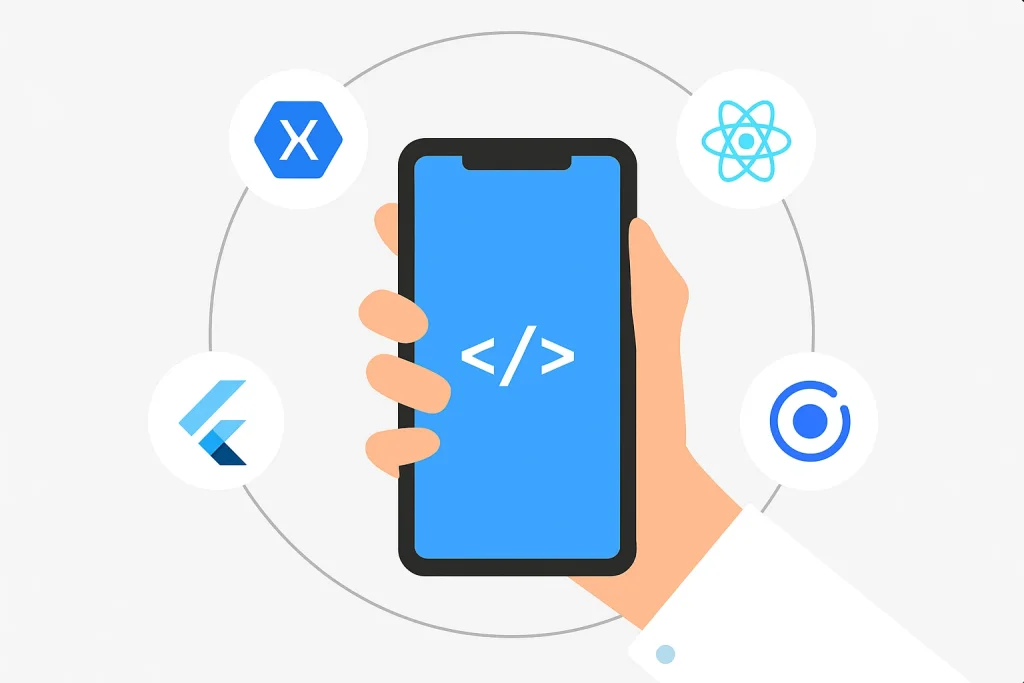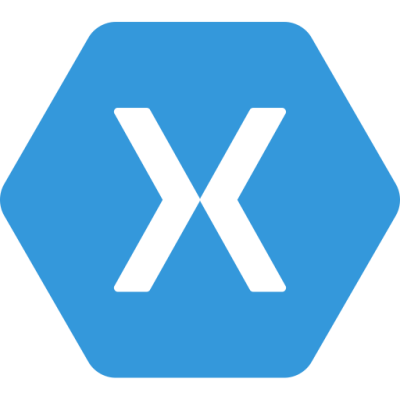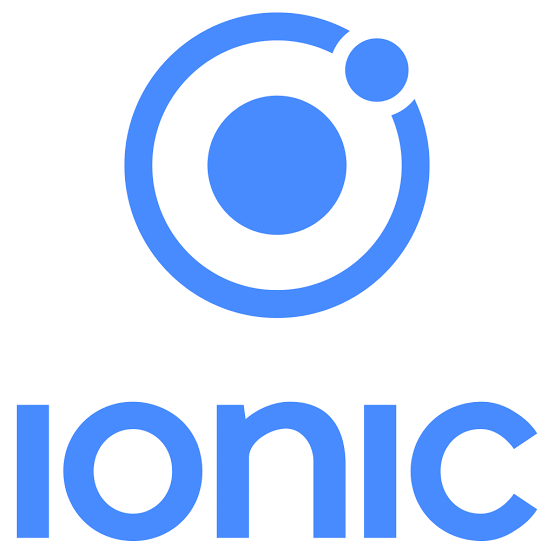
Still writing separate code for iOS and Android? That’s so 2015 because most teams don’t do that anymore. Cross-platform frameworks allow you to build apps for both platforms without doubling your workload.
If you’re thinking about investing in top cross-platform app development, you have to stay on top of the latest tools that help your team move fast and crush those deadlines.
Besides, maintaining consistency and staying lean gives you a sharp edge.
Why is this approach proving so instrumental for modern businesses?
Simply because you cannot cut corners on speed, reach, and cost efficiency, Cross-platform development turns out to be the best of both worlds. This blog delves into the nitty-gritty of cross-platform app development frameworks and useful tips to help you pick the right one
Call us now!
Boost your digital presence with our expert.
What is Cross-Platform App Development?
Cross-platform app development allows you to build your app once and launch it everywhere. It includes iOS, Android, web, and desktop, all from a single codebase.
And believe me, it pays off!
Smoother development, lower costs, and quicker releases while keeping the user experience sharp are some of the perks of cross-platform app development.
It is gaining ground with app development teams looking for more flexibility, speed, and smarter workflows. Sharing one codebase cuts down on duplicate work and bugs, so quality remains paramount at all times. Updates go live faster, features stay in sync, and teams do not have to burn out just to match up.
With today’s cross-platform mobile app development frameworks becoming increasingly efficient and user-friendly, more companies offering cutting-edge cross-platform mobile app development services are adopting this approach.
It is not just a tech choice but a smart strategy. When you need to move fast and stick to your budget, cross-platform development lets you launch with confidence and scale up without any fuss.
Native Vs. Cross-Platform App Development?
It all boils down to what matters the most for your business.
If you’re in my shoes, or any decision-maker’s shoes, you know this isn’t just a technology stack debate. It’s about what will strike the right chord for your business and your users.
So, what would I do? First things first, I would jot down my priorities. Do I want pixel-perfect customization and a user experience that’s tuned to each device?
If the answer is yes, native might be the answer.
As Sundar Pichai rightly puts it, “Focus on the user and all else will follow.”
With that said, maybe timelines, budgets, and the need to adapt fast are what you are looking at. Cross-platform development gives you a strategic advantage, in that case.
Ask yourself – what will strike the right chord with your customers and keep you competitive?
In B2B, the right choice isn’t just about code. It’s about setting yourself up for growth, agility, and long-term value. And that’s why nothing short of the best cross-platform app development suffices.
Performance
Native apps offer top-tier responsiveness because they are custom-made for one platform. Touch feedback, animations, and screen transitions often feel buttery smooth. That said, tools like Flutter and React Native have raised the bar significantly. Unless you’re developing graphics-heavy apps like advanced mobile games or AR solutions, the performance gap isn’t something most users will notice.
Cross platform mobile app development frameworks are now refined enough to meet enterprise-grade standards. They have become instrumental for businesses that want to combine speed with scale, without making trade-offs on app responsiveness.
User Experience
This is where impressions are made as well as lost. Cross-platform frameworks have matured enough to replicate native UI components closely. Whether it’s a familiar scroll effect on Android or button behavior on iOS, most users won’t sense a difference.
Consistent visual styling, intuitive layouts, and logical flow are no longer a luxury. The good news is that with cross-platform mobile app development frameworks that come equipped with ready-made libraries and UI kits. Modern development teams can leverage them to meet these baseline expectations, and that too, without having to write custom code for each operating system.
Key thing to remember- one slip in UX, and user churn goes up. Smooth navigation and frictionless interaction often speak louder than new features.
Development Time
Time is rarely on your side in the tech world. That’s why many teams turn to cross-platform app development service providers because they simplify timelines. A single codebase means fewer resources needed and fewer sync-ups across iOS and Android dev teams. Testing, maintenance, and deployment become less chaotic.
If you’re in a cycle of continuous releases or MVP testing, the development efficiency that cross-platform mobile app development frameworks bring is hard to overlook. Speed isn’t just about launch. It’s about how quickly you can iterate, fix, or pivot.
So, is pixel-perfect performance worth extra months in development? Or would your users prefer a well-made app in half the time? That trade-off is where business thinking meets engineering decisions.
Call us now!
Boost your digital presence with our expert.
Benefits of Cross-Platform Development
Cost-Efficiency
Fewer codebases mean smaller teams and less time in QA. Cross platform app development service providers help reduce redundancy while keeping standards high. If you’re thinking lean but expect results, this approach checks both boxes.
Speed to Market
Time-to-launch is trimmed significantly. Cross platform mobile app development frameworks give teams a shared foundation to work faster and adapt quickly.
Unified Experience
Uniformity enhances brand recognition. These frameworks support consistent UI and performance while preserving a native-like feel.
Simplified Maintenance
Bug tracking and feature rollouts become less complicated. One change propagates across platforms without delay.
Greater Reach
Broader platform coverage boosts discoverability. Companies working with cross platform app development service providers can expand their footprint efficiently.
Top Cross-Platform Frameworks to Know
Picking the right framework can set the tone for your whole product lifecycle. Besides, it influences the team structure, budget decisions, and how fast you get feedback from real users.
Flutter

Flutter has gained serious traction among cross-platform app development service providers. Backed by Google and built with Dart, this framework is designed for high-performance apps that don’t compromise on visual richness. The hot reload feature isn’t just a developer perk; it changes how teams iterate, test, and roll out builds.
Flutter is setting a new benchmark in the industry, with 46% of developers worldwide choosing it as their preferred framework (Statista, 2024).
React Native

React Native, strikes a balance between speed and flexibility. JavaScript remains its core, making it accessible to web teams branching into mobile. This product by Meta is ideal when timelines are tight and user feedback loops need to be short. While this cross-platform app development frameworkmay require native modules for some advanced features, its ability to scale early-stage ideas into production-ready apps makes it a solid contender.
Xamarin

Xamarin has been serving enterprise-grade teams with an inclination for C# and dot NET. Owned by Microsoft, it slots well into your existing infrastructure. It might not be as flashy as its counterparts, but it gets the job done. Courtesy: native APIs and tools developers are already familiar with. For companies operating within regulated industries, Xamarin renders the much-needed structure and predictability.
Ionic

Ionic is a perfect pick for teams looking to move fast with a strong emphasis on UI consistency. Built on as HTML, CSS, and JavaScript, it supports rapid prototyping and nice & clean interfaces. If you are targeting internal apps or MVPs where performance is not really mission-critical, Ionic offers unparalleled agility without complexity.
Unity (for games and immersive apps)
Unity’s strength lies in interactive content. If your product roadmap includes AR, VR, or high-end 3D, Unity lets you develop once and reach 20+ platforms. While not your typical business app framework, for any cross platform mobile app development service focused on gaming or simulation, Unity is a go-to.
Call us now!
Boost your digital presence with our expert.
How to Choose the Right Cross-Platform App Development Framework?
Choosing the right cross-platform mobile app development framework is about alignment with your product goals, resources, and release timelines. The right decision can move your roadmap forward. The wrong one can slow you down from day one.
Ask yourself:
- What will your app do? A high-speed MVP calls for Flutter or React Native. Complex enterprise apps might lean toward Xamarin or .NET MAUI.
- What’s your team’s comfort zone? Choose tools that fit your developers’ existing language proficiency and project workflows.
- How native is your design vision? If fine UI details matter, look for frameworks that let you get as close to native as possible.
- What’s the ecosystem like? A strong community of experts typically means quicker issue resolution, more extensive integrations, and reduced technical debt.
When in doubt, consult with an agency that specializes in cross-platform app development services. Onboarding a partner who has seen how these decisions play out in real-world builds matters. A framework is no less than a partner in your product’s lifecycle.
Conclusion:
Zeroing in on the right cross-platform framework plays an instrumental role in the development process. Reduced development cycles, better resource-allocation, smooth functioning across a variety of devices, and community support are some of the mainstays of cross-platform mobile app development
Users notice the difference with a consistent experience everywhere. Collaborating with the right agency that provides the best cross-platform app development significantly alleviates your development challenges. AppAspect Technologies is a notable agency offering cross-platform app development services with a proven track record. They have a vast pool of experts specialized in Flutter and custom react native app development services. If you need value-added react native or cutting-edge Flutter app development services with no hiccups and exemplary innovation, AppAspect is your go-to agency.

Gurupritsingh Saini is an entrepreneur and the one who leads his team at AppAspect Technologies Private Limited. He has vast knowledge of mobile application development. AppAspect helps businesses by providing website and mobile app development services.







